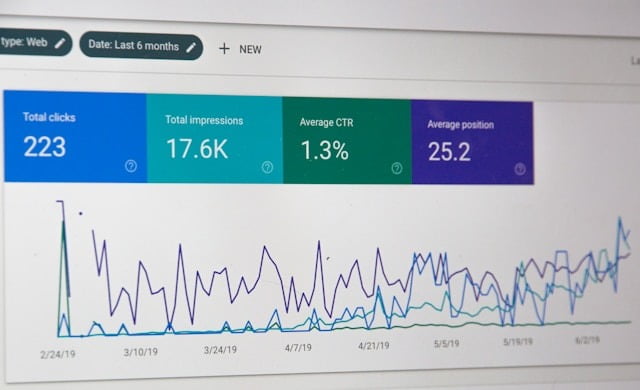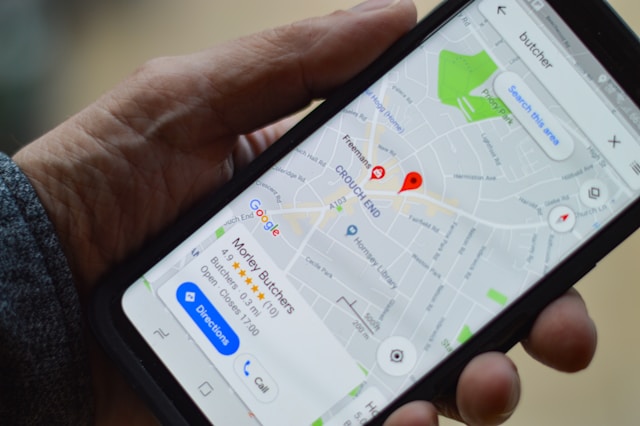
Think about Sarah, a 30-something with a nagging knee pain. She’s not flipping through the phone book or scanning billboards for a doctor. Instead, she’s on her phone, typing “best orthopedic surgeons near me” into Google.
A recent study found that 77% of patients start their healthcare search online. Traditional healthcare marketing – think billboards and newspaper ads – just can’t compete in this digital world.
Healthcare providers who want to connect with patients like Sarah need a well-crafted digital marketing strategy. It’s the key to building a strong reputation, standing out in a crowded market, and reaching the people who need your services most.
The Transformation of Patient Behavior

How patients find and choose doctors has changed dramatically. Just a few years ago, a friend’s recommendation or a drive past a medical office might be enough. Today, it’s all about the internet.
- Online Is Where It Starts: A whopping 80% of internet users have looked for health information online. That could be researching symptoms, comparing specialists, or reading reviews about a practice.
- Your Digital Footprint Matters: It’s not just about having a website. Patients want to find you on social media, review sites, and even local directories. Make sure you have a presence!
- Patients Crave Convenience: Think about how easy it is to book a hotel online or order takeout. Patients expect the same ease when finding a doctor. Can they schedule appointments through your website? Is your information clear and up-to-date?
If you’re not meeting patients online, you’re missing out. Digital marketing is how you adapt to the way modern healthcare consumers make decisions.
Core Benefits of Healthcare Digital Marketing

Picture this: a billboard on a busy highway might be seen by thousands, but how many of those people actually need your type of care? Digital marketing flips this outdated model on its head. Here’s why:
-
- Reach the Right People: Imagine advertising directly to people in your city who have searched online for “migraine specialist” or who follow health and wellness pages on social media. That’s the power of digital targeting!
- Bang for Your Buck: Digital marketing is incredibly cost-effective, especially compared to traditional channels. A recent study found that healthcare practices see an average return of $5 for every $1 spent on digital marketing. You can even start small and scale as your budget allows.
- Make Smarter Decisions: With digital marketing, you’re not flying blind. Track website visits, which ads people click, and even how many phone calls you get from your online efforts. This data lets you ditch what doesn’t work and double down on what does.
- Build Stronger Relationships: Patient relationships don’t end at the appointment. Use email to share health tips, social media to answer questions, or a blog to offer valuable information. This type of engagement turns patients into loyal fans.
Let’s Get Practical
- Example 1: Targeted Ads: A pediatrician could run social media ads shown only to parents of young children within a 20-mile radius of their practice.
- Example 2: Leveraging Data: A website’s analytics reveal most visitors leave the “appointment booking” page. This signals a need to streamline that process for better results.
- Example 3: Post-appointment care: A dental practice sends a monthly email with tips for healthy teeth, reminding patients of the importance of regular checkups.
Digital marketing isn’t some vague buzzword. It offers real advantages like precise targeting, better affordability, data-driven insights, and the ability to nurture patient relationships long-term.
Key Components of a Successful Healthcare Digital Marketing Strategy

“Digital marketing” is a broad term. Let’s break down the most essential pieces for healthcare providers:
- A Patient-Focused Website: This is your online home base. Make it mobile-friendly, easy to navigate, and packed with clear info about your services and providers. Include simple ways to request appointments or contact your team.
- Search Engine Optimization (SEO): SEO is all about your website showing up when people search for terms like “pediatric dentist [your city]”. It takes some work, but it’s incredibly valuable long-term.
- Content is King: Consistently share helpful content! Think blog posts on common health issues, videos explaining procedures, or infographics on social media. This builds your authority and draws people in.
- Social media: Pick the platforms where your patients are (Facebook, Instagram, etc.). Don’t just promote, but share valuable tips, answer questions, and build a community around your practice.
- Email Power: Email marketing might sound old-school, but it’s not! Use it to send appointment reminders, share health newsletters, or offer special promotions to existing patients.
Examples:
- Website: A cardiology practice revamps their website, focusing on patient education and an easy-to-use appointment booking feature.
- SEO: A dentist invests in SEO, and their practice starts ranking at the top of Google results for local searches.
- Content: An orthopedic surgeon starts a blog about injury prevention and sees a boost in website traffic and new patient inquiries.
These components work together. Great content drives people to your website, SEO ensures they find you, and social media keeps them engaged. A medical marketing agency knows how to blend these elements together to create a healthcare marketing strategy.
Case Studies: Proof That It Works
Let’s face it, fancy marketing terms mean nothing if they don’t translate into results. Here’s how real healthcare providers have found success with digital marketing:
-
- Case Study 1: The Small Clinic That Could A family practice in a rural area was struggling. They focused on local SEO (think searches like “doctor near me”) and created social media pages highlighting their unique community care. Result? A 20% increase in new patients within six months.
- Case Study 2: Reviews Rock An orthopedic group encouraged happy patients to leave online reviews on platforms like Google and Healthgrades. This boosted their visibility in search results and built trust with potential patients, leading to more booked appointments.
- Case Study 3: Content Pays Off: A dental practice started a blog called “Healthy Smiles 101” with easy-to-understand articles about good oral hygiene. They shared these on social media and saw their website traffic skyrocket, attracting new leads who valued their expertise.
These aren’t overnight miracles. Success takes a consistent strategy. However, these examples show that healthcare providers of all sizes can benefit!
Digital marketing isn’t just about theory. It’s a proven way to attract new patients, enhance your reputation, and grow your practice in a world where healthcare decisions happen online.
Getting Started with Healthcare Digital Marketing

Feeling overwhelmed? Don’t be! You can take charge of your digital marketing, even if you’re starting from scratch. Here’s how:
- Take an Honest Look: Evaluate your current online presence. Do you have a basic website? Any social media pages? What seems to be working (or not working)?
- Set SMART Goals: Don’t say “I want more patients.” Be specific! Goals like “Increase website traffic by 20% in 3 months” or “Get 10 new patients per month from our blog” are measurable and give you something to aim for.
- Start with the Biggest Impact: Trying to do everything at once is a recipe for burnout. Focus on 1-2 core strategies first. If you have no website, that’s the priority. If your website is outdated, tackle that.
- Do What You Can, Outsource the Rest: Busy healthcare providers aren’t always web designers or social media gurus. There’s no shame in getting help! Consider partnering with a healthcare marketing agency for specialized support, freeing you up to focus on patient care.
Pro Tips:
-
- Claim It: Ensure your practice is listed correctly on Google My Business and other local directories.
- Consistency is Key: Regular blog posts or social media updates are way better than a flurry of activity followed by silence.
- Track Your Progress: Use tools like Google Analytics to monitor website traffic and see where your leads come from.
Examples to Inspire
-
- Do it yourself: A solo practitioner commits to posting one informative health tip on their practice’s Facebook page every day.
- Work with an agency: A large clinic outsources SEO and content creation to a healthcare marketing agency, allowing them to focus on patient care.
- Rely on data: A practice runs a month-long social media ad campaign specifically targeting new moms and tracks the results closely for future marketing decisions.
Digital marketing is an ongoing journey, not a one-time fix. Start small, be consistent, learn from your results, and don’t be afraid to seek help when you need it!
The healthcare landscape has changed. Patients aren’t just looking for a doctor; they’re looking for a trusted guide, a convenient experience, and a practice that understands their needs.
Digital marketing is how you bridge that gap. It allows you to connect with the right patients, build a strong online reputation, and showcase the amazing care you provide. Think of it as a vital sign for your practice’s success in the 21st century.
84% of patients use online reviews as a key factor in choosing a doctor. Are you taking charge of your online presence to influence that decision?
Don’t get left behind. The future of healthcare marketing is digital! Contact us today to partner with the healthcare marketing agency that knows how its done.








